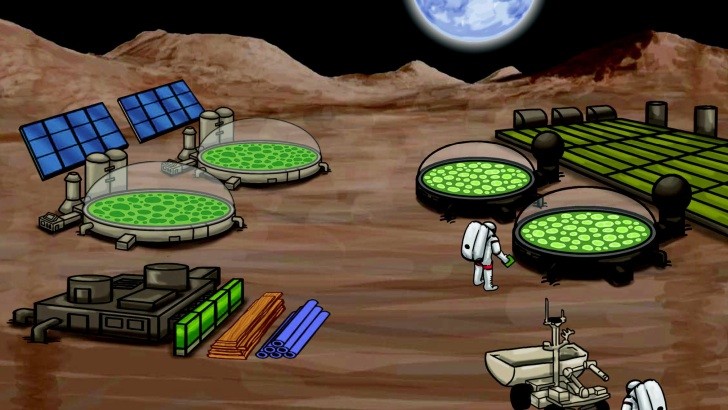A 916-day manned mission to Mars, the only planet in our solar system we would like to colonize eventually, will cost billions of dollars as SpaceX founder Elon Musk has estimated. But this could be solved using microbial space farming.
The problem with having to travel in space for a large amount of time is luggage, since you’ll need a lot of food, medicines, special equipment and other auxiliary items. All these things need to be carried around and this requires a lot of fuel.
According to Berkley Lab, two thirds of the ship’s mass for a return trip to Mars would consist of fuel. The same scientists who came up with this also found a solution to the problem - synthetic biology.
“Not only does synthetic biology promise to make the travel to extraterrestrial locations more practical and bearable, it could also be transformative once explorers arrive at their destination,” says Adam Arkin, director of Berkeley Lab’s Physical Biosciences Division (PBD) and a leading authority on synthetic and systems biology.
Further researching led the scientists to determine that “space farming” could minimize the mass of fuel needed by 56 percent for the mission, while the food shipments could be downsized by 38% and the mass for 3D printing a habitat for the people once they land on Mars by 85%.
For example, excavated carbon dioxide from typical Martian atmospheric and soil composition could be converted to methane for fuel, with the extra 6 kg (12 lb) produced daily by the crew also being converted into the stuff to juice up jet packs for emergency use.
The scientists are backed up by the National Aeronautics and Space Administration (NASA) as well as the University of California, aiming to prove the investment needed to overcome the needs for further biomanufacturing will payoff for future space programs and that abiotic manufacturing used in space travel won’t cut it for our plans to explore.
According to Berkley Lab, two thirds of the ship’s mass for a return trip to Mars would consist of fuel. The same scientists who came up with this also found a solution to the problem - synthetic biology.
“Not only does synthetic biology promise to make the travel to extraterrestrial locations more practical and bearable, it could also be transformative once explorers arrive at their destination,” says Adam Arkin, director of Berkeley Lab’s Physical Biosciences Division (PBD) and a leading authority on synthetic and systems biology.
Let the microbes do the work
Their study looks to solve four main things: fuel generation, food production, biopolymer synthesis and pharmaceutical manufacturing. All of these would then be based on microbes that can transform simple starting substrates like CO2, water biomass or minerals, into materials needed by astronauts.Further researching led the scientists to determine that “space farming” could minimize the mass of fuel needed by 56 percent for the mission, while the food shipments could be downsized by 38% and the mass for 3D printing a habitat for the people once they land on Mars by 85%.
For example, excavated carbon dioxide from typical Martian atmospheric and soil composition could be converted to methane for fuel, with the extra 6 kg (12 lb) produced daily by the crew also being converted into the stuff to juice up jet packs for emergency use.
The scientists are backed up by the National Aeronautics and Space Administration (NASA) as well as the University of California, aiming to prove the investment needed to overcome the needs for further biomanufacturing will payoff for future space programs and that abiotic manufacturing used in space travel won’t cut it for our plans to explore.
